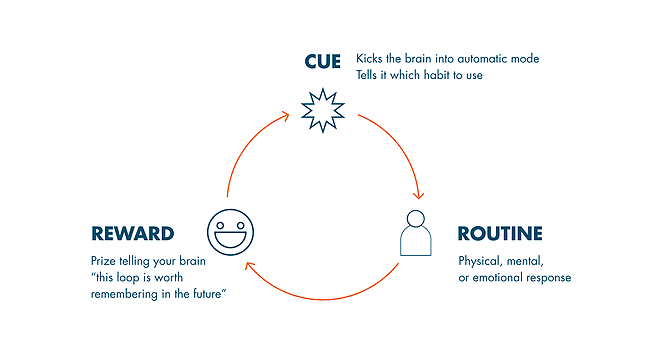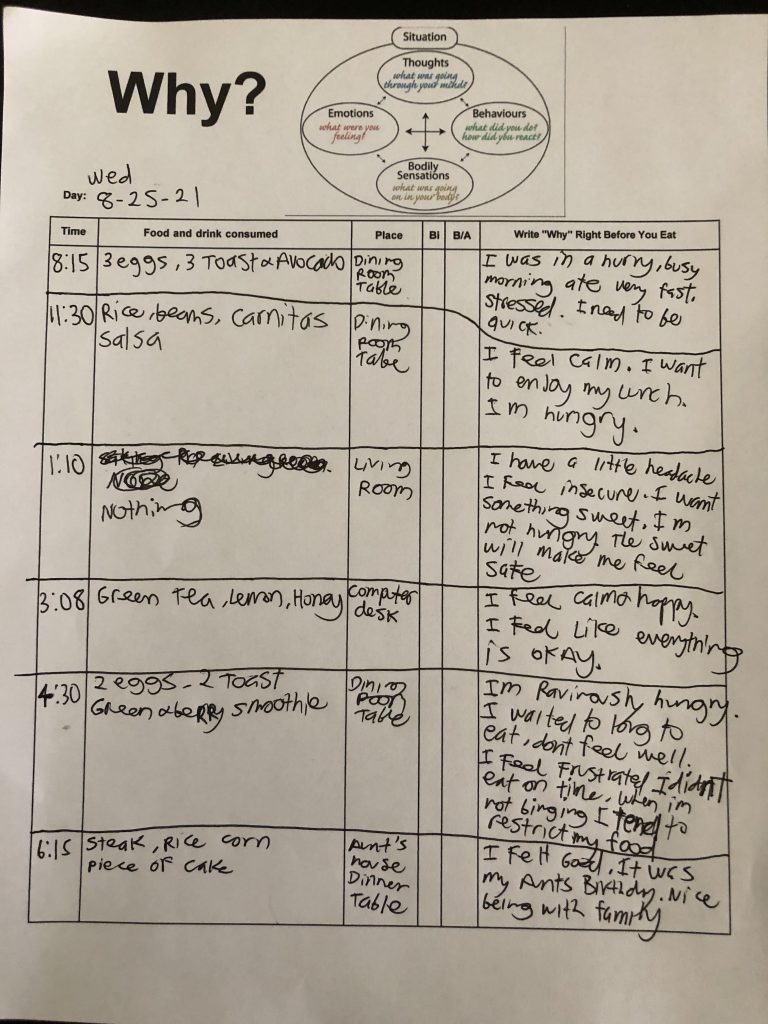There is no one-size-fits-all answer to the question of how to get healthy. What works for one person might not work for another, and that’s okay!
However, there are a few things that almost everyone can do to improve their health habits, and journaling is one of them.
In this blog post, we’ll discuss why journaling is a great way to get more in touch with your body and understand your health habits. We’ll also give you some tips on how to start journaling if you’re not sure where to begin – hint: mindful food journaling.
What is a habit?
A habit is defined as a regular behavior that is done without thinking about it very much. This can be something like brushing your teeth, going for a run, or eating breakfast.
While some habits are good for our health, others can be harmful. For example, smoking cigarettes or binge eating are both unhealthy habits that can have negative consequences on our bodies.
So, how can journaling help us to break bad habits and establish good ones? Read on to find out!
Habits are made of three parts – trigger, routine, reward

The first part of a habit is the trigger, or the cue that tells your brain it’s time to do the routine. For example, if you want to establish a habit of going for a run every morning, your trigger might be putting on your running shoes as soon as you wake up.
The second part of a habit is the routine, or the actual behavior that you’re trying to do. In our running example, the routine would be going for a run.
The last part of a habit is the reward, or something that feels good and reinforces the behavior. After going for a run, you might give yourself a pat on the back, have a healthy smoothie, or take a relaxing shower.
Of course the same trigger, routine, and reward sequence also includes our bad habits as well!
For example an eating trigger may be stress or too much hunger. This trigger then sets off an automatic routine, in this case eating junk food.
Then the reward is temporarily feeling better because you’re distracted while you eat, and the sugar gives you a hit of dopamine like a drug.
So how can you use a journal to improve your health and eating habits?
Start by keeping a food journal for one week
Write down everything you eat and drink, as well as the time of day and what the general situation is (for example, you’re bored, or you’re with some friends). Be as detailed as possible.
At the end of the week, take a look at your journal and see if there are any patterns. Are you eating more when you’re bored or stressed? Do you tend to make healthier choices when you eat with someone else?
Another way to use journaling for better health is to keep track of how much water you’re drinking each day. Aim for eight glasses of water per day, and write down every time you have a glass.
If you find that you’re not meeting your goal, try setting a reminder on your phone or keeping a water bottle with you at all times. Journaling can help you be more mindful of your health habits and make changes to improve your overall health!
Additionally, utilize the Greatness app to track your daily water intake, set reminders, and monitor your progress towards your health goals. With its comprehensive features, the Greatness app serves as a powerful habit tracker, allowing you to cultivate mindfulness and make positive changes in your overall health and well-being.
Write down everything you eat, including hunger levels and satisfaction

When you’re journaling about your eating habits, it’s also important to include how you’re feeling before and after you eat.
Rate your hunger on a scale of one to ten before you start eating, and then again when you’re finished.
You should also note how satisfied you feel after eating. Were you still hungry? Did the food give you energy? How did it taste?
Answering these questions can help you be more mindful of what you’re eating and why. If you find that you’re often overeating or eating foods that don’t make you feel good, journaling can help you make changes to improve your diet.
Be honest with yourself – if you ate something unhealthy, write it down
One of the most important things to remember when journaling about your eating habits is to be honest with yourself.
If you ate something that you know isn’t good for you, write it down. Don’t try to hide it or pretend it didn’t happen – that will only make it harder to change your habits.
Remember that journaling is for your benefit, not anyone else’s. Be honest with yourself and use your journal as a tool to help you make better choices in the future.
After one week, review your journal and look for patterns
At the end of your week of journaling, take some time to review your entries. Look for patterns in what you’re eating and how you’re feeling.
Are there certain times of day when you’re more likely to make unhealthy choices? Perhaps there are certain foods that make you feel bad?
Are you eating more when you’re bored or stressed? Do you tend to make healthier choices when you eat with someone else?
Answering these questions can help you be more mindful of your eating habits and make changes to improve your overall health.
Identify the blind spots!
Really dig deep!
Be honest with yourself!
If you want journaling to be effective, you really need to be honest with yourself. Take a good hard look at your eating habits and see where you can improve.
It’s also important to identify any blind spots – areas where you’re not aware of your own bad habits. For example, maybe you always snack after dinner without realizing it. Once you identify these blind spots, you can start working on making changes.
Spot Your Triggers
A trigger is anything that sets off a bad eating habit. For example, maybe you always eat dessert after dinner because it’s a tradition in your family.
Or maybe you tend to mindlessly snack when you’re bored or stressed. Once you identify your triggers, you can start to work on avoiding them or substituting more healthful foods.
Therefore, identifying these patterns is an important first step in making changes to your diet. Once you know what triggers your unhealthy eating habits, you can start to work on avoiding those triggers or substituting more healthful foods.
Understand the rewards from your routines
After you’ve identified your triggers, it’s also important to understand the rewards that come from your routines.
Like the rewards such as stress reduction from comfort eating. Once you understand the rewards that come from your routines, you can start to work on substituting more healthful activities or foods.
If journaling about your eating habits has helped you identify any unhealthy patterns, there are a few things you can do to make changes.
Making Changes
First, try to avoid your triggers or substitute more healthful foods. For example, if you tend to eat dessert after dinner, try having fruit instead.
If you mindlessly snack when you’re bored or stressed, try doing something else to relax, like reading or taking a bath.
Second, make sure you’re getting the nutrients you need by eating a variety of healthy foods.
And third, be patient with yourself. Making changes to your diet can take time and it’s okay to slip up occasionally. Just keep working at it and eventually you’ll develop healthier habits for life.
Happy journaling!



